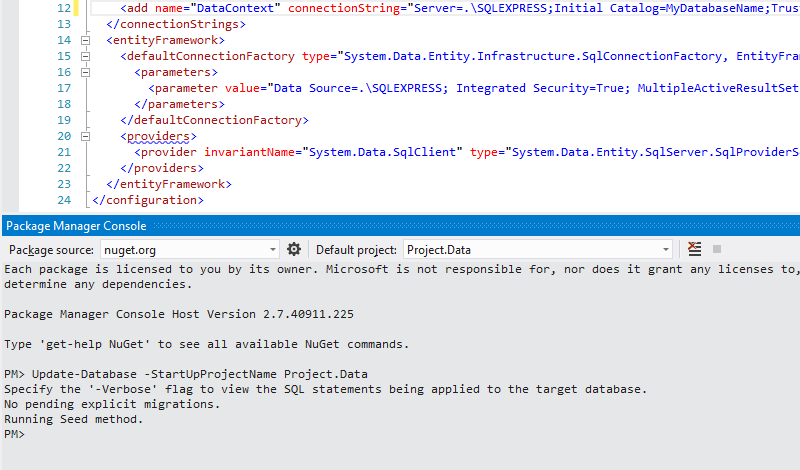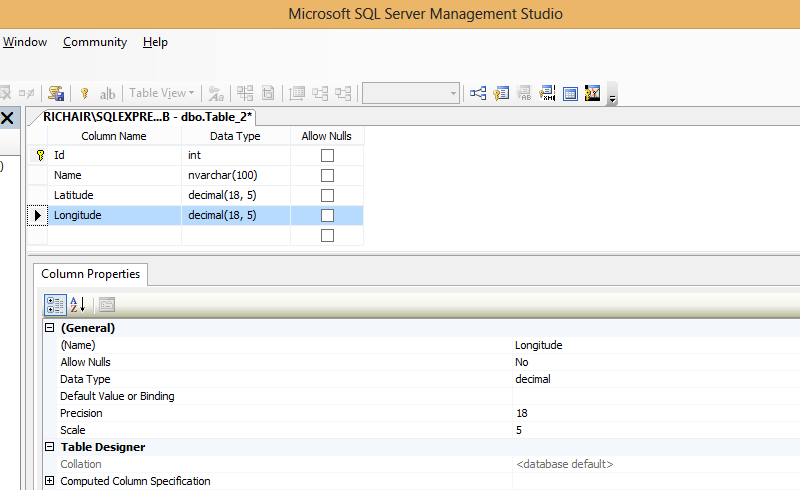I usually setup a new solution so that it contains multiple projects. There's a project for web files, data files, services, utilities and so on. When I downloaded and setup Entity Framework through Nuget I installed it into my Project.Web (where all my views/controllers are) and to my Project.Data (where my data context is located with my repositories) projects.
I installed EF Migrations to my Project.Data project as this is where my data context file lives. Everything compiles and run but sometimes when using Entity Framework Migrations I noticed that I was getting an error:
I found that there were a couple of work arounds to this issue:
- Removing the .suo file and restarting the project help out occasionaly.
- Clearing the project and rebuilding it sometimes worked.
- Other times just running migrations 'Update-Database' multiple times got it working.
None of the above was a silver bullet so I decided to dig a bit further to see what the issue was. It turns out that I needed to do 2 things to fix this issue. The first was that I needed to make sure the Project.Data web.config file contained the connection string to my database and the other was that I needed to specify the start project when running migrations.
In my Project.Data webconfig I included the connection string for my database.
When I want to run EF Migrations I now specify the correct startup project name by first selecting Project.Data from the 'Default Project' drop down in the Package Manager Console and then entering this line:
Update-Database -StartUpProjectName Project.Data




Member discussion